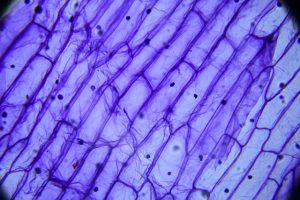Decoding the Neuroscience Behind Addiction Recovery
🔍 The Science of Addiction Recovery explores the complex biological foundations of substance addiction and recovery. It explains that addiction is influenced by a combination of genetic, neurobiological, psychological, and environmental factors. The ar…….

🔍 The Science of Addiction Recovery explores the complex biological foundations of substance addiction and recovery. It explains that addiction is influenced by a combination of genetic, neurobiological, psychological, and environmental factors. The article illustrates how chronic substance use leads to lasting changes in the brain's reward circuits, which can diminish the natural pleasure response and perpetuate addiction. Recovery involves treatments like medication-assisted treatment (MAT), cognitive-behavioral therapy (CBT), and contingency management that aim to repair these neural circuits and promote neuroplasticity for healthier behavior patterns. The science emphasizes the critical role of dopamine regulation and how understanding this can lead to more effective recovery strategies, leveraging the brain's capacity for change. It advocates for a deep biological understanding as key to supporting individuals in their pursuit of sustained recovery from addiction.
Addiction recovery is a multifaceted process deeply rooted in the intricate workings of the human brain and body. This article delves into the science behind addiction recovery, exploring the biological underpinnings, psychological strategies, and holistic practices that contribute to a successful journey. From understanding how substances alter neural pathways to the role of genetics and environment, we examine the factors that influence susceptibility to addiction and recovery potential. We discuss the integration of medications, therapies, and community support, as well as the importance of nutrition, exercise, and mindfulness in healing and maintaining sobriety. The road to recovery is not linear; it involves a blend of scientific understanding, personalized treatment, and resilience against setbacks. This article aims to provide a comprehensive overview of the current research and future trends in addiction recovery science, highlighting strategies that empower individuals to navigate their paths toward long-term wellness and fulfilling lives.
- Understanding Addiction: A Biological Perspective
- The Brain's Response to Substance Abuse
- Neuroplasticity and Recovery: Rewiring the Brain
Understanding Addiction: A Biological Perspective
The science of addiction recovery is deeply rooted in a comprehensive understanding of how addiction affects the brain and body from a biological standpoint. Addiction, often characterized by compulsive substance use despite adverse consequences, is not merely a behavioral issue but a complex interplay between genetics, neurobiology, psychology, and environment. At the core of this biological perspective is the concept that repeated drug use can lead to long-term changes in the brain’s structure and function. These alterations disrupt normal neural circuits involved in reward, motivation, and memory, which are key components of the Science of Addiction Recovery.
Neuroimaging studies have provided critical insights into these neurobiological changes. They show that addiction can diminish the sensitivity of the reward system to natural rewards, making individuals more dependent on substances to experience pleasure. Additionally, this process often involves the dysregulation of dopamine, a key neurotransmitter associated with feelings of euphoria and motivation. The recovery process seeks to restore balance and functionality in these systems through various evidence-based treatments, including medication-assisted treatment (MAT), cognitive-behavioral therapy (CBT), and contingency management interventions. These approaches aim to address both the immediate and long-term needs of individuals on the path to recovery, promoting neuroplasticity and rewiring the brain towards healthier patterns of behavior. Understanding the biological underpinnings of addiction is crucial for developing effective treatment strategies and supporting individuals in their journey toward sustainable recovery.
The Brain's Response to Substance Abuse
Neuroscience has elucidated the complex mechanisms underlying addiction, providing a scientific foundation for effective recovery strategies. Substance abuse alters the brain’s structure and function, particularly impacting regions responsible for reward, motivation, and memory. The initial use of substances often triggers a surge of dopamine, reinforcing drug-seeking behaviors through a feedback loop. Over time, this disruption in neurotransmitter balance can lead to tolerance and dependency. Recovery from addiction involves the brain’s ability to rewire itself, known as neuroplasticity, to heal and restore balance. Therapeutic approaches that combine medication, behavioral therapy, and support systems are pivotal in harnessing this potential for recovery. These interventions aim to normalize brain activity by gradually restoring natural reward pathways, thereby facilitating a return to healthier patterns of living and reinforcing the science of addiction recovery. The process is not linear; it requires commitment, adaptability, and ongoing support tailored to each individual’s unique neural response to substance abuse. Through a comprehensive understanding of the brain’s response to substances and targeted interventions, recovery becomes a scientifically grounded and achievable journey.
Neuroplasticity and Recovery: Rewiring the Brain
Neuroplasticity, the brain’s ability to reorganize itself by forming new neural connections throughout life, plays a pivotal role in addiction recovery. The science of addiction recovery is deeply intertwined with understanding how the brain adapts to changes, particularly those associated with substance use and withdrawal. During prolonged substance abuse, certain neural pathways become overactive and others weaken due to the brain’s attempt to accommodate the foreign chemicals. In recovery, neuroplasticity aids in rebalancing these pathways. Through therapeutic practices like cognitive-behavioral therapy (CBT), individuals can learn new coping mechanisms that promote the growth of healthy neural connections, effectively ‘rewiring’ their brain to reduce cravings and mitigate triggers that once led to substance use.
Furthermore, the science of addiction recovery also encompasses the use of medications that target the brain’s neurotransmitter systems. These medications can help normalize dopamine levels and restore balance in the reward circuitry. Combined with behavioral therapies, these interventions create a conducive environment for the brain to undergo positive changes through neuroplasticity. The recovery process is not static; it involves continuous adaptation as the individual’s brain adapts to a sober life, strengthening pathways that support sobriety and weakening those that encourage substance use. This neurobiological transformation underscores the potential for long-term recovery, emphasizing the importance of comprehensive treatment strategies in the science of addiction recovery.
Recovery from addiction is a complex, multifaceted process deeply rooted in biological changes within the brain. “The Science of Addiction Recovery” delves into the underlying mechanisms that explain why substance abuse alters neural pathways and how neuroplasticity plays a pivotal role in rewiring these circuits for healthier functioning. By understanding addiction through a scientific lens, we can better appreciate the challenges individuals face and the potential for recovery. This article has highlighted the critical aspects of this journey, from comprehending the biological basis of addiction to uncovering the transformative power of neuroplasticity in healing the affected brain regions. The path to recovery is not uniform; it is a testament to the human capacity for adaptation and change. Through scientifically informed approaches, we can support those on this journey, offering them hope and a clearer understanding of how they can reclaim their brains’ function and lead fulfilling lives post-recovery.









